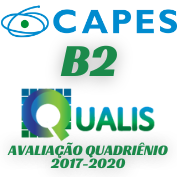Análisis Bibliométrico Sobre la Industria 4.0 en Ingeniería Química
DOI:
https://doi.org/10.69872/revistafoz.v8i1.344Palabras clave:
Inteligência Artificial, Automação, Engenharia Química, Aprendizado da Máquina, Internet das CoisasResumen
Este trabajo aborda la Industria 4.0 en relación con la Ingeniería Química, realizando un análisis bibliométrico de artículos con palabras clave como "Inteligencia Artificial", "Automatización", "Ingeniería Química", "Internet de las Cosas" y "Aprendizaje Automático". La metodología implica una revisión bibliográfica del período 2014 a 2022, y demuestra un crecimiento exponencial en las publicaciones.
Citas
BRACCONI, Mauro. Intensification of catalytic reactors: a synergic effort of multiscale modeling, machine learning and additive manufacturing. Chemical Engineering and Processing-Process Intensification, v. 181, p. 109148, 2022.
BRUCKNER, Linus et al. The current and future use of simulation in discrete and process industries. Siemens AG, 2020.
CANCINO, Christian A. et al. A bibliometric analysis of supply chain analytical techniques published in Computers & Industrial Engineering. Computers & Industrial Engineering, v. 137, p. 106015, 2019.
CIFFOLILLI, Andrea; MUSCIO, Alessandro. Industry 4.0: national and regional comparative advantages in key enabling technologies. European Planning Studies, v. 26, n. 12, p. 2323-2343, 2018.
ÇITMACI, Berkay et al. Machine learning-based ethylene concentration estimation, real-time optimization and feedback control of an experimental electrochemical reactor. Chemical Engineering Research and Design, v. 185, p. 87-107, 2022.
CONRADO, Victoria Almeida; DOS SANTOS RIBEIRO, Mariléa Gomes. Elaboração da interpretação automática de fraturas nos perfis de imagem utilizando a Inteligência Artificial. Latin American Journal of Energy Research, v. 10, n. 2, p. 13-22, 2023.
DENN, Morton. Chemical engineering: An introduction. Cambridge University Press, 2011.
DE TOMMASO, Jacopo et al. Experimental methods in chemical engineering: Process simulation. The Canadian Journal of Chemical Engineering, v. 98, n. 11, p. 2301-2320, 2020.
FUCHS, Christian. Industry 4.0: the digital German ideology. Triplec: Communication, Capitalism & Critique, v. 16, n. 1, p. 280-289, 2018.
GILCHRIST, Alasdair. Industry 4.0. Apress, 2016.
HU, Jiahui et al. Artificial intelligence for performance prediction of organic solvent nanofiltration membranes. Journal of Membrane Science, v. 619, p. 118513, 2021.
KAGERMANN, Henning. Change through digitization—Value creation in the age of Industry 4.0. In: Management of permanent change. Wiesbaden: Springer Fachmedien Wiesbaden, 2014.
HUANG, Qingyu et al. A review of the application of artificial intelligence to nuclear reactors: Where we are and what's next. Heliyon, v. 9, n. 3, 2023.
KOULOURIS, Alexandros; MISAILIDIS, Nikiforos; PETRIDES, Demetri. Applications of process and digital twin models for production simulation and scheduling in the manufacturing of food ingredients and products. Food and Bioproducts Processing, v. 126, p. 317-333, 2021.
LEE, Jay. Smart factory systems. Informatik-Spektrum, v. 38, n. 3, p. 230-235, 2015.
LEPORE, Dominique; SPIGARELLI, Francesca. Integrating Industry 4.0 plans into regional innovation strategies. Local Economy, v. 35, n. 5, p. 496-510, 2020.
MADSEN, Dag Øivind. The emergence and rise of Industry 4.0 viewed through the lens of management fashion theory. Administrative Sciences, v. 9, n. 3, p. 71, 2019.
MAJSTOROVIC, Vidosav D.; MITROVIC, Radivoje. Industry 4.0 programs worldwide. In: Proceedings of the 4th International Conference on the Industry 4.0 Model for Advanced Manufacturing: AMP 2019 4. Springer International Publishing, 2019.
MODAK, Nikunja M. et al. Fifty years of Transportation Research journals: A bibliometric overview. Transportation Research Part A: Policy and Practice, v. 120, p. 188-223, 2019.
NEYT, Nicole C.; RILEY, Darren L. Application of reactor engineering concepts in continuous flow chemistry: a review. Reaction Chemistry & Engineering, v. 6, n. 8, p. 1295-1326, 2021.
POWELL, Sean K. et al. Past, present, and future of soft?tissue prosthetics: advanced polymers and advanced manufacturing. Advanced Materials, v. 32, n. 42, p. 2001122, 2020.
SEO, Min?Ho et al. Geometrically structured nanomaterials for nanosensors, NEMS, and nanosieves. Advanced Materials, v. 32, n. 35, p. 1907082, 2020.
SHEVTSOVA, Hanna; SHVETS, Nataliia; KASATKINA, Maryna. How leading global chemical companies contribute to industry 4.0. In: 2020 61st International Scientific Conference on Information Technology and Management Science of Riga Technical University (ITMS). IEEE, 2020.
?LUSARCZYK, Beata. Industry 4.0: Are we ready?. Polish Journal of Management Studies, v. 17, 2018.
TEIXEIRA, Josélia Elvira; TAVARES-LEHMANN, Ana Teresa CP. Industry 4.0 in the European union: Policies and national strategies. Technological Forecasting and Social Change, v. 180, p. 121664, 2022.
THEBELT, Alexander et al. Maximizing information from chemical engineering data sets: Applications to machine learning. Chemical Engineering Science, v. 252, p. 117469, 2022.
VENKATASUBRAMANIAN, Venkat. The promise of artificial intelligence in chemical engineering: Is it here, finally?. AIChE Journal, v. 65, n. 1, 2019.
YANG, Xiao et al. Digitally-enhanced lubricant evaluation scheme for hot stamping applications. Nature Communications, v. 13, n. 1, p. 5748, 2022.
YUE, Liang et al. Single-vat single-cure grayscale digital light processing 3D printing of materials with large property difference and high stretchability. Nature communications, v. 14, n. 1, p. 1251, 2023.
Descargas
Publicado
Versiones
- 2025-04-05 (2)
- 2025-03-26 (1)
Cómo citar
Número
Sección
Licencia

Esta obra está bajo una licencia internacional Creative Commons Atribución-SinDerivadas 4.0.
Os autores mantêm os direitos autorais e concedem à revista o direito de publicação inicial, com o trabalho simultaneamente licenciado sob a Licença Creative Commons 4.0, Atribuição-Sem Derivações, e pelos direitos de publicação. Os autores podem publicar seus trabalhos on-line em repositórios institucionais / disciplinares ou nos seus próprios sites.











